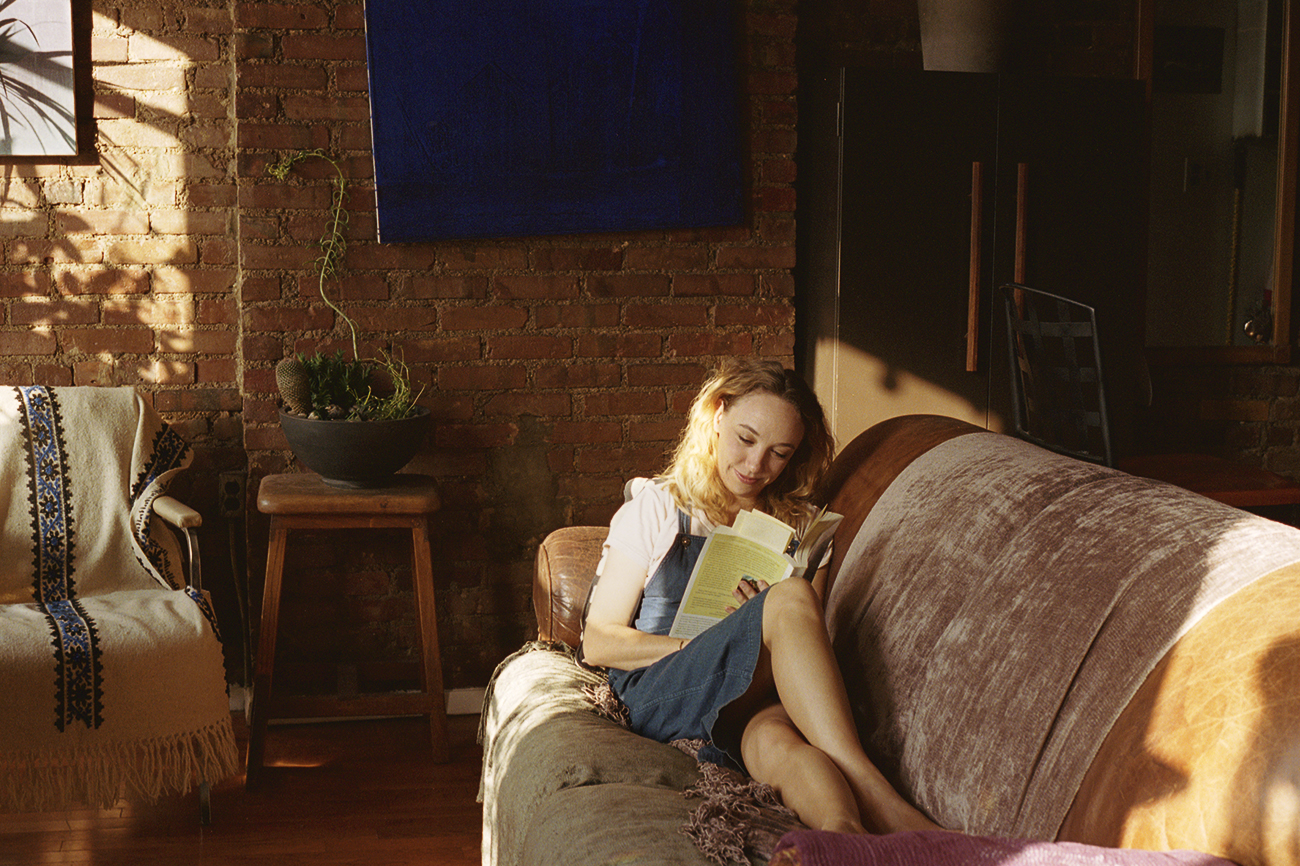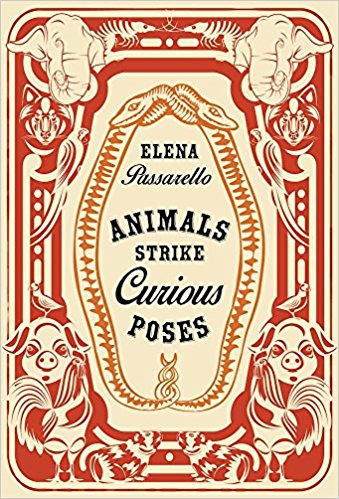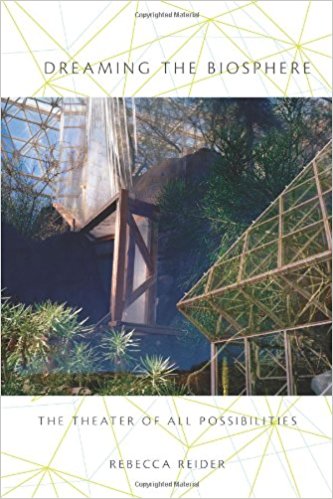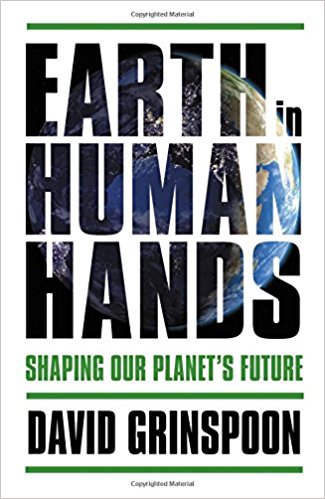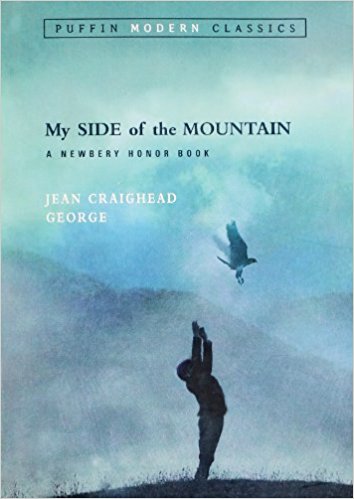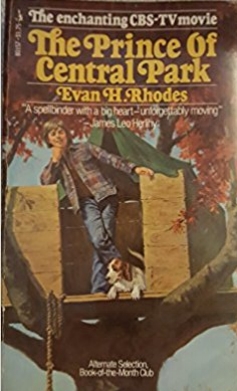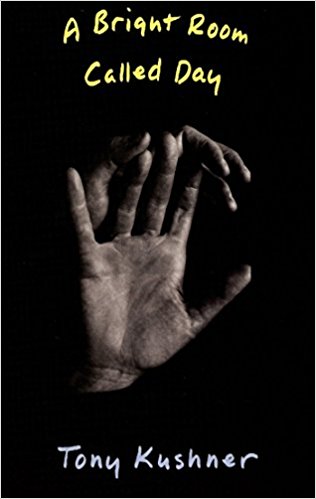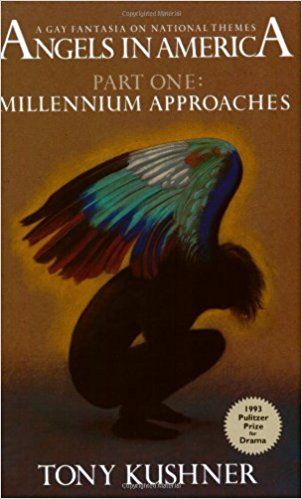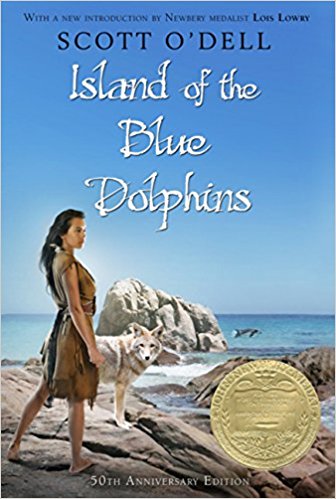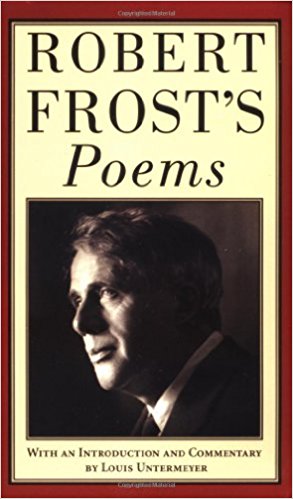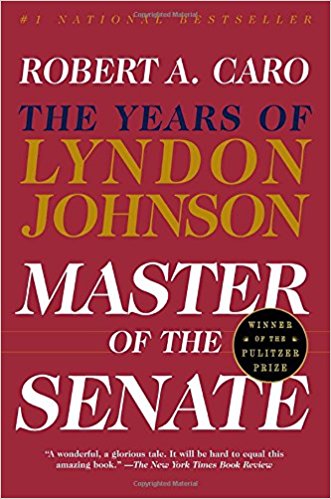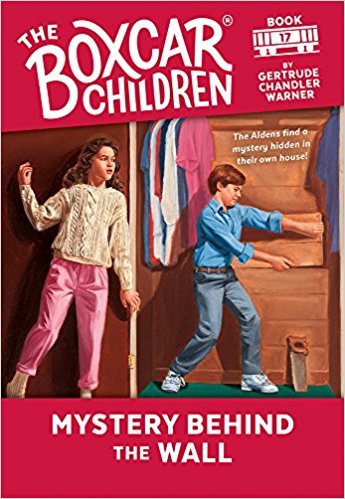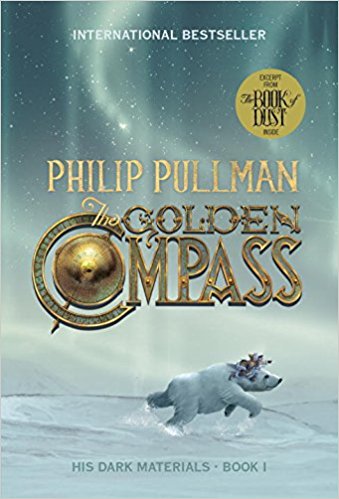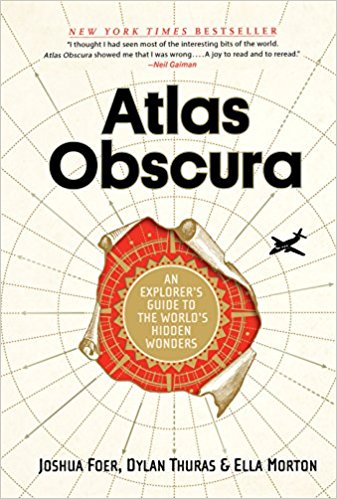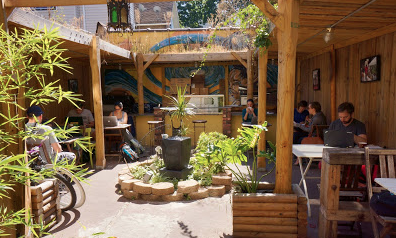
Clare Mcnulty
Photography by Heather Sten
Clare McNulty spends much of her time as Chantal Witherbottom, a character from TBS' (and her best friend, writer Sarah-Violet Bliss') hit show Search Party. Inhabiting another persona for one's job seems to be deeply connected to a reason why many people enjoy reading. Escapism is an easy way to describe it, though the act of escaping often kickstarts an internal renewal upon returning to reality from a novel. Clare generously shares with GAL her holistic view about reading and acting, and what exactly it is about powerful narrative that convinces her to take on new characters. Hint: it's not as complicated as you might imagine!
Girls at Library: What book did you first fall in love with?
Clare McNulty: It's a time period that I remember, and there are a lot of significant books from that time period, but the first one is My Side of the Mountain. I don’t even remember the author, but it was about a little boy who—it’s kind of a survivalist tale about a little boy who like, lives in the forest, and that’s it. He turns a tree trunk into a house, he builds a fireplace in there out of clay, you know, he survives by hunting small animals [laughs].
GAL: Are you a prepper?
CM: I feel like there’s a part of me that’s a prepper, yeah. I grew up in Arizona and my parents are environmentalists, so we spent a lot of time in the desert, and I think I kind of always have been a little like that.
GAL: Are there any other books involving survivalism that you enjoyed growing up? Or that you particularly love now as an adult?
CM: There was another book called The Prince of Central Park which was about a boy who survived in Central Park, in a similar way. Island of the Blue Dolphins I think was another book where the girl was surviving on an island by herself. Those are the books I remember, but it’s not a theme that I’ve carried into adulthood, at least not in what I read. I do have a Go Pack, though.
GAL: I’ve been trying to build mine. I have to commit and just do it!
CM: Well you know, after Sandy, I don’t remember what agency it was, but it was an agency of the state and they held a workshop for businesses that worked in lower Manhattan, because I worked in lower Manhattan at the time, and our office was obviously obliterated for like three months, and so they held this workshop where they actually gave out Go Packs, like really comprehensive Go Packs in a backpack, so that’s where I got mine.
GAL: Do you have a current or forever favorite book?
CM: My current favorite book is Animals Strike Curious Poses by Elena Passarello. It’s a series of short stories that are biographies of famous animals. It’s astonishing. It’s so painful in ways and yet so beautiful.
“I’ve always believed that we should be spending more time studying our relationship with animals and studying the behavior of animals over other kinds of things that we study.”
GAL: What book would you recommend to Sarah-Violet?
CM: Actually, I would recommend Animals Strike Curious Poses! It takes a nuanced look at behavior, the behavior of humans towards animals, and the behavior of animals in the context of a world that is increasingly controlled by humans. There’s a lot to learn from our interactions with these animals. Sarah-Violet and I are both very sensitive to everything. We’re sensitive to people’s behavior, we’re sensitive to people’s feelings, and I think sensitive people tend to also feel a lot of compassion towards both wild and domesticated animals. I’ve always believed that we should be spending more time studying our relationship with animals and studying the behavior of animals over other kinds of things that we study. And in a way, I think that writing TV and writing narratives is kind of a version of that. It’s studying people and studying our behavior and so, I think in a way Elena Passarello and SV are kind of doing the same thing.
GAL: Is there a fictional character you’d most love to portray on film?
CM: Oh. My. God.
GAL: You can name a couple if that’s easier.
CM: Well, I usually think about this in terms of who I look like, who I would be most likely to play. So I’ve always wanted to play Chelsea Clinton in something, because I kind of think I look like her.
GAL: You do!
CM: Right? A little bit. I think I also kind of look like Jane Goodall, if I lost 35 pounds. I would love to play Jane Goodall. Those are the two that come to mind because those are things I’ve thought about before.
“I loved narratives in which a young girl was a hero.”
GAL: What is the power of story? Please share some ways in which fictional narratives have affected you in your life.
CM: I often think about the stories I read as a child. The books that probably had the biggest impact on me when I was young were the Golden Compass books. It’s one of the Philip Pullman books about a young girl who is traveling between dimensions and she’s simply an incredible character. When I was young, I wanted to play her really badly. I loved narratives in which a young girl was a hero. I adored books where children were the protagonists, and they were heroes negotiating terrible circumstances or whatever. I was also a huge Boxcar Children fan!
GAL: Me too! Still seems like an appealing life to me.
CM: Me too! Totally. So in growing up with those narratives, I always pictured myself as the protagonist of my own story when I was young, as the hero of my own story: tough-ass bitch able to handle anything. It wasn’t until I got older that I realized perceiving yourself as the protagonist of your own story is actually such a luxury. It’s a luxury for a lot of reasons, not the least of which is that I grew up very privileged, but also, it also just goes away sometimes. One goes through difficult times in their life that challenge the idea that you are the center of your own story. And I think it’s important to think of yourself that way in order to put one foot in front of the other. So having those stories as a young person I think helped me to know what that feels like, to feel like you’re in control of your story. I think that maybe if I hadn’t read so many of those types of books, I might not know what that feels like.
painting by Aurora Andrews
GAL: If you were to write your memoir, what would you title it and why?
CM: Truly, the idea of writing my own memoir makes me nauseous. I can’t even think about what the title would be, but I did ask a friend of mine, I’m just going to give you the answer that they gave me because it was very funny. He just thought for like two seconds and he said, “Indecisions?” Which I thought is an amazing idea, very funny and a very good answer and I wish it was my own.
GAL: You mentioned that you prefer nonfiction to fiction. Why is that the case?
CM: Well, I exclusively read fiction up until college. Something shifted in me during college. First of all, I realized how there’s so little time in one life, and that when I like to read I like to learn something new about the world. Nonfiction satisfies my brain in a way that fiction doesn’t. I also think you have to be vulnerable to read fiction. You have to be in an open and vulnerable space, and it’s hard for me to get there sometimes. Like, the older I get, the harder it is for me to feel open to fiction. So I can’t really describe why, but there was a definitely a shift in my life when I started reading nonfiction instead of fiction.
GAL: What book or books caused the switch from fiction to nonfiction?
CM: When I got to college, I read Master of the Senate by Robert Caro, and it was so good. And it was the first biography that I read where I was like, Oh God! This can be as satisfying as fiction, because truth is [laughs] stranger than fiction. That was a neat thing to discover. So that may have been it. Also at that time, I was also reading a lot of plays, so that is fiction I guess. So that would be the type of fiction I do read, but that’s also more about, I don’t know, performance.
GAL: What did you study in school?
CM: I studied theater and politics. I double majored in performance and comparative politics.
GAL: Why politics?
CM: My grandfather was a politician, he was a congressman in Arizona, so I grew up in a very political family. And my dad was also Gabby Gifford’s campaign chairman early on.
GAL: How do you choose the books you read?
CM: My parents usually recommend books to me, which is how I found the Elena Passarello book. Right now I’m working on writing a short film, and through that process, have become obsessed with a certain idea. Then I want to read all the stuff on that idea, so right now I’m reading a bunch of books about Biosphere II, which was the thing that Biodome is based on. It was an experiment in the '90s that was supposed to be the precursor to the Mars space station. But everything about it is fascinating.
GAL: Is it important for you to physically hold the book you read? Or can you read on a device?
CM: I like holding the book, because I like to make marks. I’m a marker. So, yeah, I like to be able to underline and stuff.
GAL: How often do you read?
CM: I always read in the morning on the weekends, and I try to read on the subway, but that doesn’t always work.
GAL: So we have a friend who has a “Sanity Shelf” which is dedicated to books she returns to again and again to re-read for pleasure, knowledge, and solace. Which books would be on your sanity shelf?
CM: After you said that, I realized I too have a Sanity Shelf. And I didn’t even mean to, it’s just the shelf where my most important books are. And A Bright Room Called Day and Angels in America, plays by Tony Kushner, I go to those a lot, a lot a lot. I’ve memorized a lot of the monologues in these plays. My grandpa wrote a book, so there’s his book on my shelf, and my dad is sort of like an amateur author, so he’s written some very subject-specific short unpublished books that I keep on that shelf. I have this book called Earth in Human Hands which was a book that my mother gave me about being a steward of the Earth that is really important to me because it’s optimistic about the future. I have a lot of plays. And then I have a book of Robert Frost poetry that my grandfather gave me.
Atlas Obscura by Joshua Foer
GAL: Who are your favorite playwrights?
CM: Tony Kushner is my favorite, and I love Sarah Ruhl and I like Tracey Letts a lot. I like Beckett.
GAL: What would you suggest to the GAL audience to read if they’re not familiar with plays but want to explore them?
CM: A Bright Room Called Day. It’s a very painful thing to read right now, because it was written right before Reagan was elected. It’s about a group of artists living in Berlin before the rise of Hitler, and the frame of the play is a character called Zillah who is a conspiracy theorist, sort of, but is just really terrified of Ronald Reagan coming to power. It’s just very timely; it’s very timely and in a way it’s terrifying. But it’s also comforting in that Tony Kushner was feeling like the world was going to end when Reagan was elected, so it’s like you’re reading this play and you’re terrified of the prospect of, you know, 45 being Hitler, but you’re reading a play by someone who was sort of terrified of the same thing in the 80s, you know? So it’s both very painful but also sort of helps gives some context. And it’s also just a great fucking play. It’s just really good.
GAL: Where’s your current favorite place to read?
CM: My favorite place to read is at this café in my neighborhood called Qathra. They have a beautiful backyard, though it’s getting cold now so I won’t go out there anymore. During the summer I go there on Saturday and Sunday morning and read before the families arrive.
painting by Aurora Andrews
“Lisa [Randall]’s language was so technical. The more technical the language, the more I enjoy it, because—and you’ll hear a lot of actors say this, for instance if you’re doing Shakespeare, it’s really fun because you can just lean into the language, and it does all the work for you.”
GAL: When you are looking at scripts for potential jobs, is there something that you look for in a character which grabs you and causes you to say “Yes”? Is it definable or is it just something you feel in your gut?
CM: Yeah, it’s that their actions make sense [laughs]. Honestly, you read so many scripts and think, no one would do that! That’s not a real thing people do.
GAL: Who’s your favorite character to play thus far?
CM: I love the characters I’ve gotten to play on TV because they’re silly, and doing comedy is really fun, obviously. But I think my favorite character I’ve gotten to play would be a physicist named Lisa Randall in a play I was writing with friends. This was a really long time ago, and the idea of the play was essentially an exploration of String Theory. Lisa’s language was so technical. The more technical the language, the more I enjoy it, because—and you’ll hear a lot of actors say this, for instance if you’re doing Shakespeare, it’s really fun because you can just lean into the language, and it does all the work for you. And so this was a case in which that was happening, I got to lean into the language, and because it was so complicated, there was not a whole lot else to do. I also got to play a smart person, which is something I never get to do, so that was great.
GAL: Please name three books you recommend reading and the reasons for your choices.
CM: They’re ones that I’ve already mentioned, but I would recommend Animals Strike Curious Poses, to just explode your heart. I would recommend Earth in Human Hands, to give you hope about the future of the earth. And I would read Dreaming the Biosphere, which is just a fascinating, well-researched story about this project in the desert in the ’90s.

